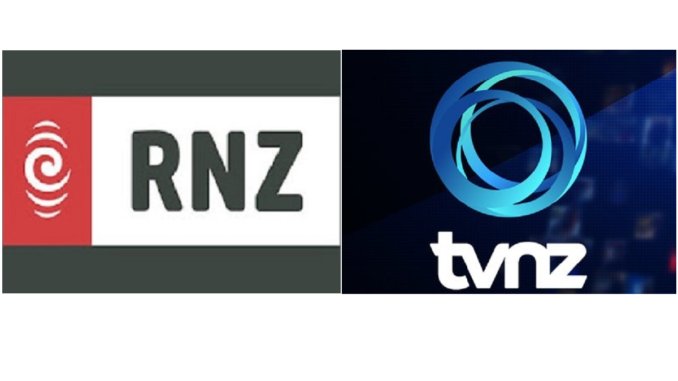
New Zealand’s Minister for Broadcasting and Media Kris Faafoi has announced the government’s decision to create a new public media entity by merging RNZ and TVNZ.
According to Faafoi, ensuring New Zealanders continue to have access to reliable, trusted, independent information and local content sits at the heart of the decision.
“The public media sector is extremely important to New Zealanders in providing them with high quality, independent, timely and relevant media content,” Faafoi said.
“But we know the media landscape is changing and the sector is having to adapt to increased competition, changing audience demands and ways of accessing media, falling revenue, and new and emerging digital platforms. We need public media which is responsive to these changes and can flourish.
“RNZ and TVNZ are each trying to adjust to the challenges, but our current public media system, and the legislation it’s based on, is focused on radio and television.
“New Zealanders are among some of the most adaptive audiences when it comes to accessing content in different ways; like their phones rather than television and radio, and from internet-based platforms. We must be sure our public media can adapt to those audience changes, as well as other challenges that media will face in the future.”
“The new public media entity will be built on the best of both RNZ and TVNZ, which will initially become subsidiaries of the new organisation. It will continue to provide what existing audiences value, such as RNZ Concert, as well as better reaching those groups who aren’t currently well served; such as our various ethnic communities and cultures,” Faafoi said
Government funding decisions will be made as part of Budget processes, and the entity will be an Autonomous Crown Entity with complete editorial independence receiving commercial and Crown funding for operations and will:
- Provide quality public media content to all New Zealanders, including groups who are currently under-served or under-represented
- Use a range of platforms, including current radio and linear TV and those of third parties, to reach audiences when, where and how audiences choose
- Operate under a charter, set out in legislation, and provide trustworthy news as a core service
- Deliver on the Crown’s Te Tiriti obligations and provide Māori stories and perspectives
- Carry advertising, while ensuring services which are currently commercial-free will remain so
- Collaborate with and support the wider New Zealand media sector where appropriate.
An Establishment Board will be appointed next month to oversee the detailed design of the entity and the change process, with the aim of having it operational by July 1, 2023.
The public will have a chance to give their views, including on the entity’s charter, through the select committee process when legislation is considered later this year.
As of 2020, TVNZ had revenues of $340m and 390 staff, while RNZ had a staff strength of 310 with $50m revenues.
While RNZ and TVNZ have welcomed the decision, some lobby groups have also voiced their concerns.
RNZ Chairman, Jim Mather said: “The crucial building blocks of the entity give us confidence that the policy is a sound response to the challenges faced by New Zealand public media in a rapidly changing global media environment.”
Mather said RNZ’s focus in 2022 would be to embrace new opportunities and prepare for the future ensuring a smooth transition for staff and audiences.
TVNZ chief executive Simon Power in a statement said that “creating a public media entity for the digital age” was an exciting opportunity, and was pleased to have a decision.
National Party broadcasting spokeswoman Melissa Lee said the merger was “a solution looking for a problem” that would reduce media plurality.
Lee said that despite “millions” being spent on the plan it was still not clear what would be delivered. The country needed more media voices, not fewer, she said.
“Merging RNZ and TVNZ into an unaccountable publicly-funded monolith will only harm their long-term value to the taxpaying public,” she told Stuff.
Stuff chief executive Sinead Boucher said it expected to make a submission at the select committee stage.
“As a commercially funded New Zealand-owned company, Stuff is keen to ensure that government intervention in the market does not undermine the commercial viability of our newsrooms and operations in every region across the country,” she said.
Myles Thomas, chairman of lobby group Better Public Media, said it was seriously concerned that the merger might enable a future government to push RNZ towards a commercial model.
Faafoi’s promise of “complete editorial independence is impossible when politicians control the entity’s funding through the annual budget”, he said.
